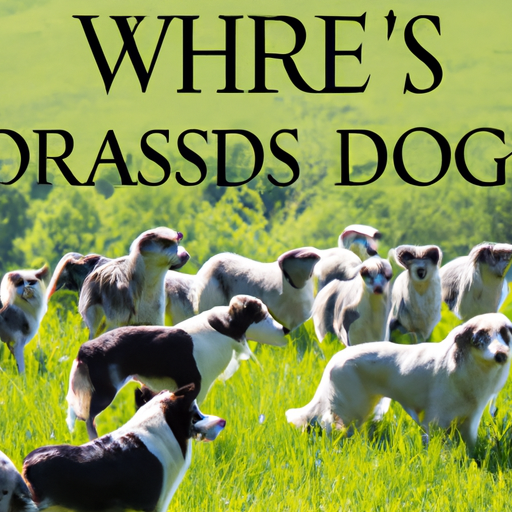Introduction
You may have heard the term “herding dogs” but what does it really mean? As a caretaker, it’s crucial that you understand not just the characteristics and responsibilities of these incredible animals, but also how their unique traits can benefit and enrich your life. Sit back and let us dive into the world of these remarkable creatures.
Understanding Herding Dogs
Herding dogs, as the name suggests, are breeds that have been trained to herd and control animals. They are typically:
- Intelligent: Quick learners and can make decisions independently.
- Active: They require regular exercise to keep their minds and bodies healthy.
- Loyal: They are dedicated to their families and their work.
They are divided into several categories based on their herding style:
- Heading dogs: These dogs are known for their ability to run ahead of the flock and turn them in the desired direction.
- Heeling dogs: These dogs work from the rear, nipping at the heels of animals to keep them moving.
- Tending dogs: These dogs act as living fences, guiding large flocks along roads and paths.
| Heading Dogs | Heeling Dogs | Tending Dogs |
|---|---|---|
| Border Collie | Australian Cattle Dog | German Shepherd |
The Role of Herding Dogs
Herding dogs are much more than just farm helpers. They play a crucial role in maintaining order and ensuring the safety of the flock. They can quickly round up animals, prevent them from straying, protect them from predators and even help with tasks like sorting and marking.
The Benefits of Owning a Herding Dog
Owning a herding dog can bring immense joy and fulfillment. They are loyal companions, intelligent and quick to learn new tricks or commands. They are also great with children, making them excellent family pets.
However, owning a herding dog is a big responsibility. They require plenty of exercise and mental stimulation. Think of creative ways to keep them engaged – puzzle toys, agility training, and regular walks or runs can do wonders.
Caring for Herding Dogs
As a caregiver, you want to provide the best for your herding dog. Here are some basic tips:
- Exercise: Regular physical activity is crucial.
- Diet: A balanced diet to maintain their energy levels.
- Training: Early and consistent training is key.
- Healthcare: Regular vet check-ups to ensure their well-being.
FAQs
Q1: Are all herding dogs the same?
No, herding dogs come in a variety of breeds, each with their own unique traits and styles.
Q2: Are herding dogs good for families?
Yes, herding dogs are typically loyal and great with children, making them excellent family pets.
Q3: What kind of exercise do herding dogs need?
Herding dogs need regular, vigorous exercise. Activities like running, agility training, or even tasks that engage their minds can be beneficial.
Q4: What should I feed my herding dog?
A balanced diet that includes protein, carbohydrates, and fats is important. Consult your vet for specific dietary recommendations.
Q5: Can I train my herding dog at home?
Yes, herding dogs are intelligent and quick learners. However, professional training can also be beneficial, especially for specific tasks or behaviors.



